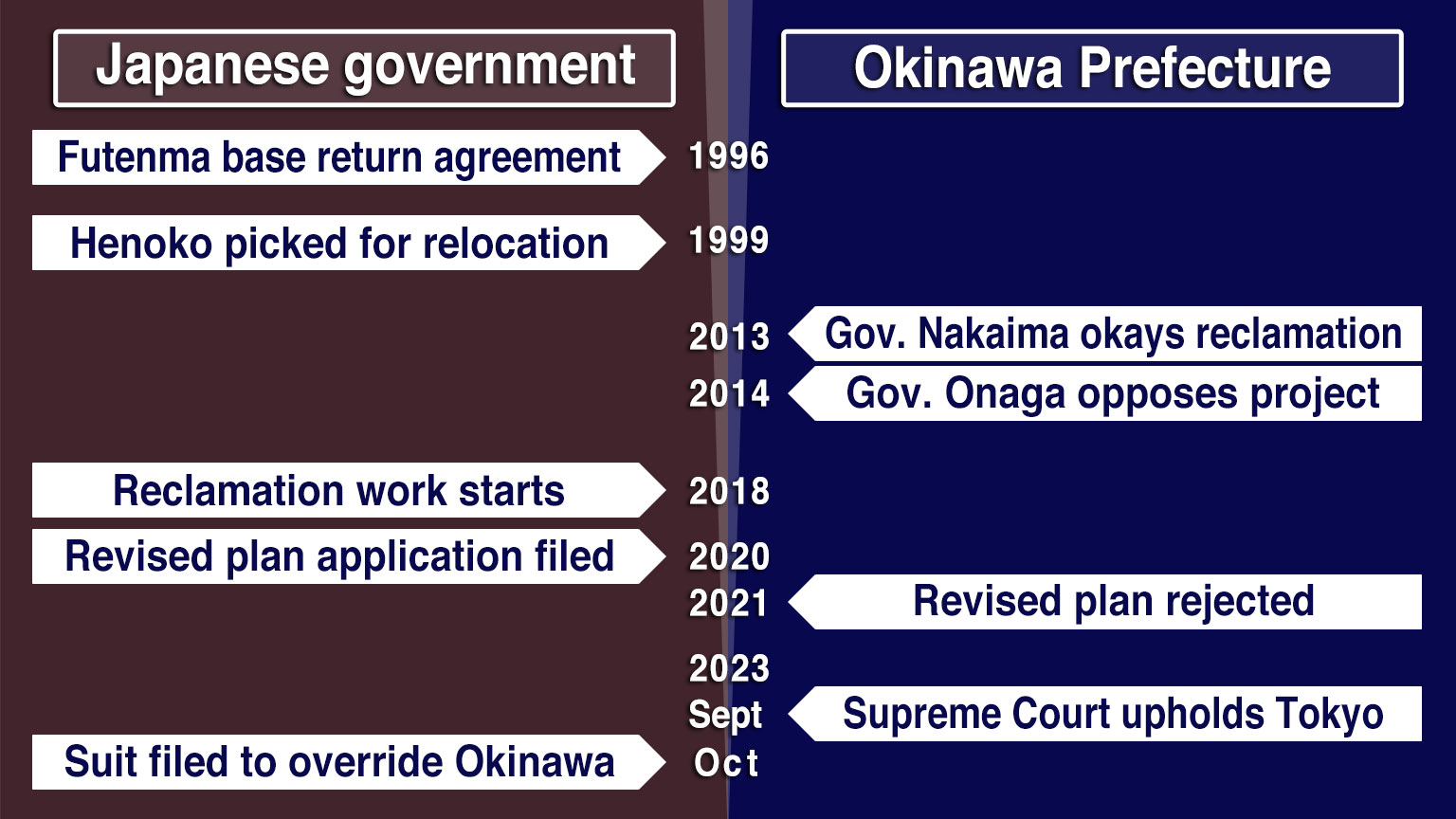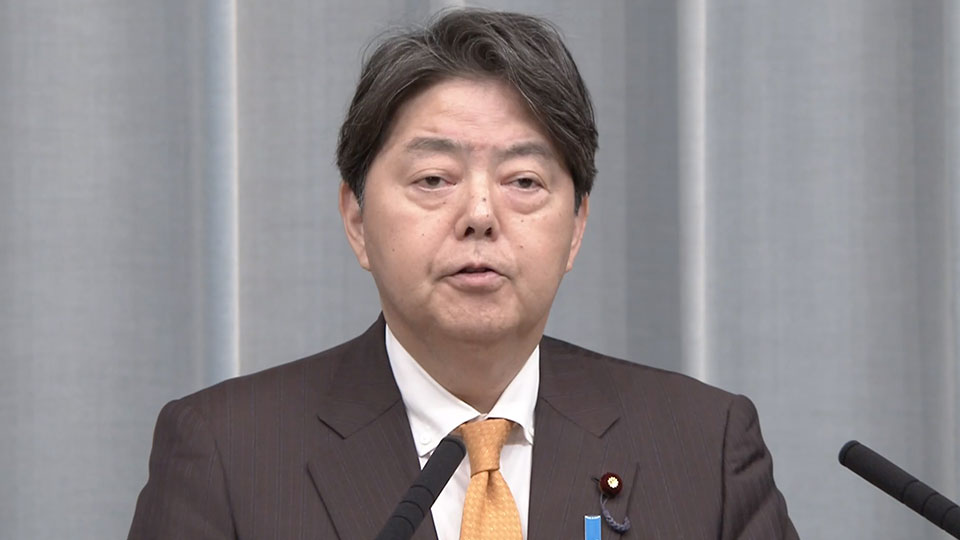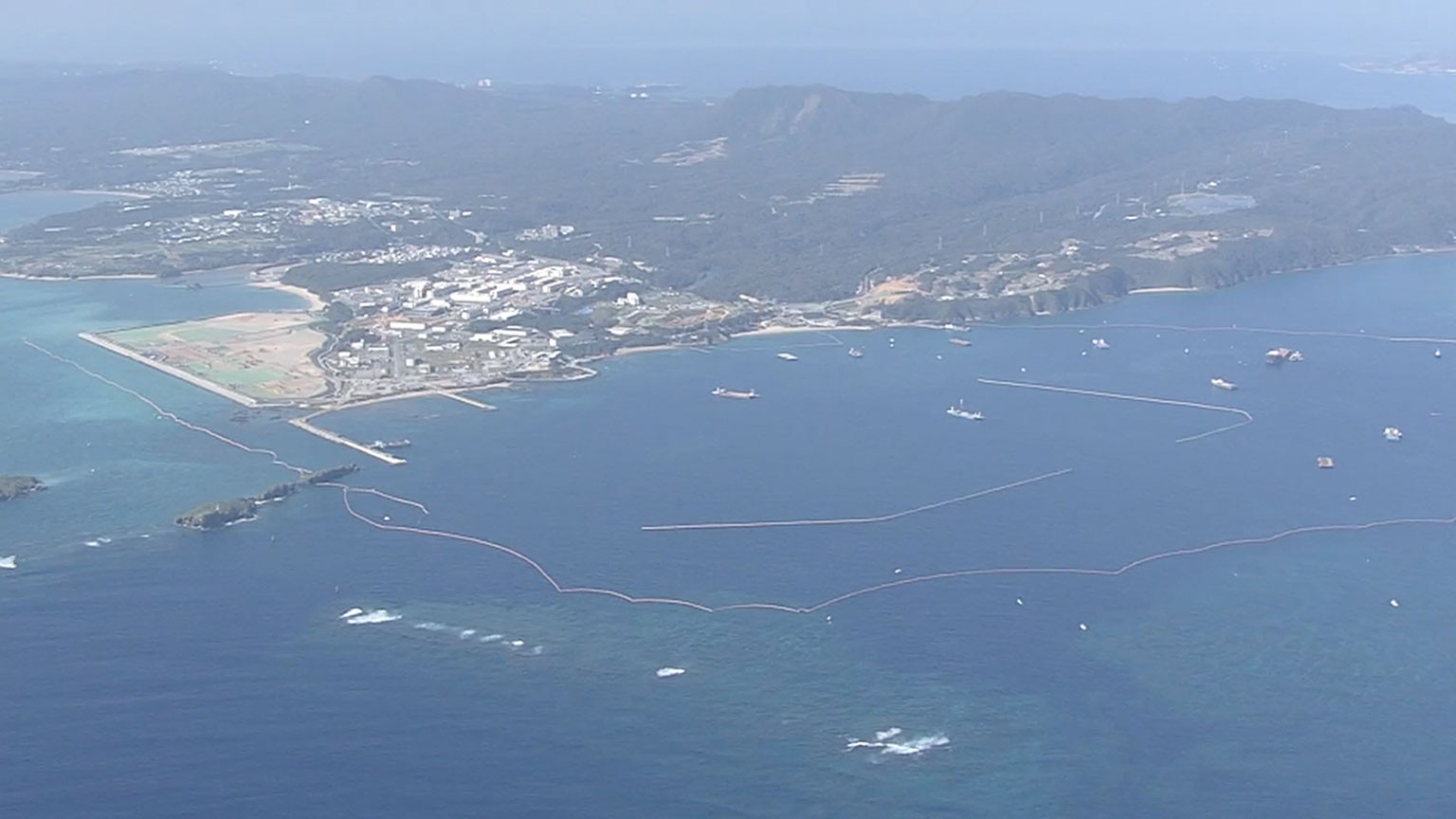A high court on Wednesday ordered the Okinawa prefectural government to approve by December 25 Tokyo's revisions to planned ground improvement that's part of a project to relocate a US military base within the prefecture.
Dispute over relocation work
The central government plans to move the US Marine Corps Futenma Air Station from the densely populated city of Ginowan to an offshore site in Nago City's Henoko district.
Reclamation work began five years ago, but the seabed was found to be too soft in the Oura Bay area, which accounts for 70 percent of the reclamation site.

Tokyo sought the Okinawa prefectural government's permission to revise the reclamation plan, but it refused. The work remains on hold.
In September, Japan's Supreme Court turned down Naha's appeal of a high court decision upholding Tokyo's directive for the prefecture to approve the new reclamation plan. But even this failed to change Naha's stance.
Tokyo filed a lawsuit in October asking the Naha branch of the Fukuoka High Court for permission to override the prefecture's decision, leading to Wednesday's ruling.

High court rules in favor of Tokyo
The presiding judge at the high court branch in Naha on Wednesday sided with the central government and ordered Okinawa prefecture to approve the revised plan by December 25.
The judge said that in addition to the significant risks to human life and health posed by the Futenma Air Station, Okinawa's refusal to approve the plan for about three-and-a-half years violated social and public interests.
He added that the feelings of Okinawans toward the reclamation project are fully understandable considering historical and other factors outlined by Naha.

If Naha refuses to comply, the government can override it and proceed with the project.
Okinawa can file an appeal with the Supreme Court. But Tokyo would be able to proceed with the project until it reaches a decision.
Mixed reactions to ruling
Following the ruling, a Ginowan resident told NHK he thinks the government wants to push ahead with this project regardless of the wishes of the Okinawan people. "If they want to move the base, it should be relocated outside the prefecture," he said.
A resident of Henoko said it's scary that the government is moving forward despite the opposition. He added that residents won't be able to put up with the aircraft noise.
Another Henoko resident said this is an issue of defense and diplomacy, which is managed by the central government. He added that he hopes Tokyo will provide compensation for the burdens imposed by the relocation.
Okinawan Governor Tamaki Denny issued a statement saying Naha will consider its options in light of Wednesday's ruling. He said he can't condone the government pushing ahead without the prefecture's approval.

Following Wednesday's ruling, Chief Cabinet Secretary Hayashi Yoshimasa stated, "The central government will proceed the project as the relocation to Henoko is the only available option."
He added that the government will strive to ease the burden imposed by US military bases while providing sincere briefings to local residents.

Revised plan — more money and time
Under the relocation plan compiled in 2013, Japan and the United States said the Futenma site could be returned to Okinawa Prefecture as early as fiscal 2022 at an estimated cost of about 2.5 billion dollars. They also said the reclamation work would take five years to complete.
But the government in 2020 filed an application with Naha to change the reclamation plan.
Under the revised plan, the work is scheduled to take about 12 years and cost almost 6.5 billion dollars. The project is expected to be completed in the 2030s.
Experts weigh in on the ruling
Keio University Professor Jinbo Ken, who specializes in defense policy, says the relocation is significant in terms of national security so it's reasonable to speed it up.
"The strategic value of the Nansei Islands, including Okinawa, won't change. From a strategic point of view, it's extremely significant that the US Marine Corps' rapid response capabilities are deployed close to Taiwan in the event an intense conflict breaks out," he said.

Chukyo University Professor Sado Akihiro, a national security expert, says the project should be reviewed.
"There's no guarantee the construction work will go well considering the reclamation site's seabed problem. At a time when labor and material costs are soaring, the government will continue to invest huge amounts of money without knowing when the project will be completed," he said.
"Geographically speaking, there may not be a problem even if the Futenma base is relocated to Kyushu."

If the project proceeds without Okinawa's approval, it would mark the first time Tokyo has overridden prefectural autonomy guaranteed by the Local Autonomy Act.
